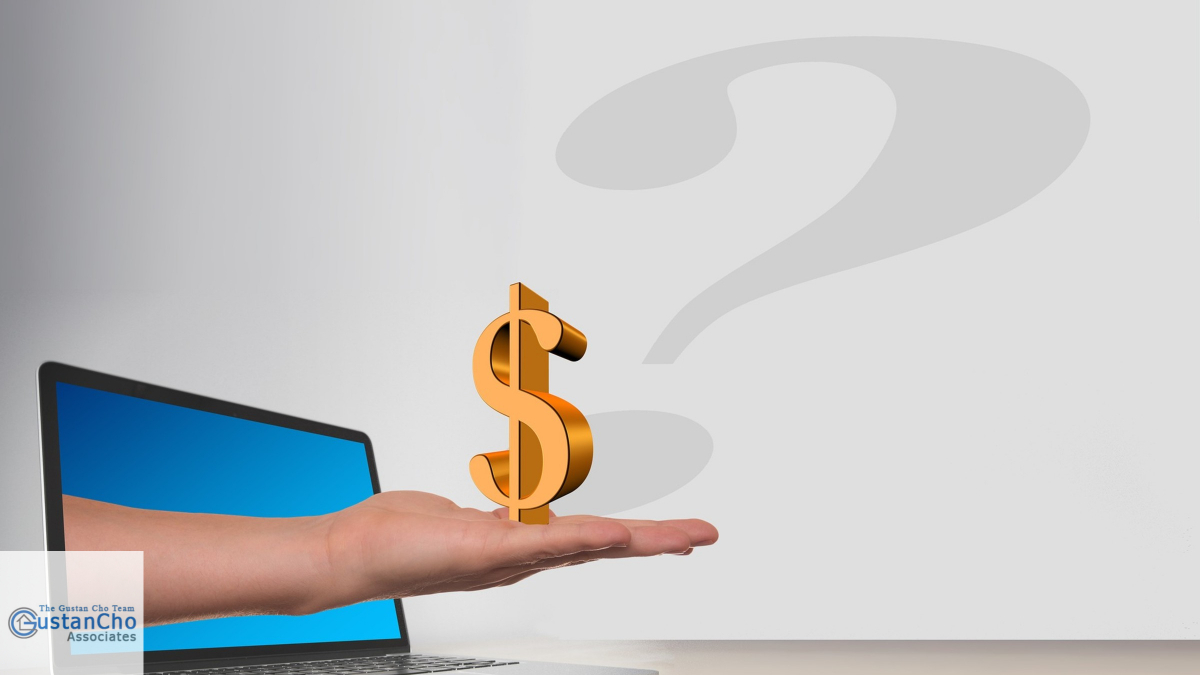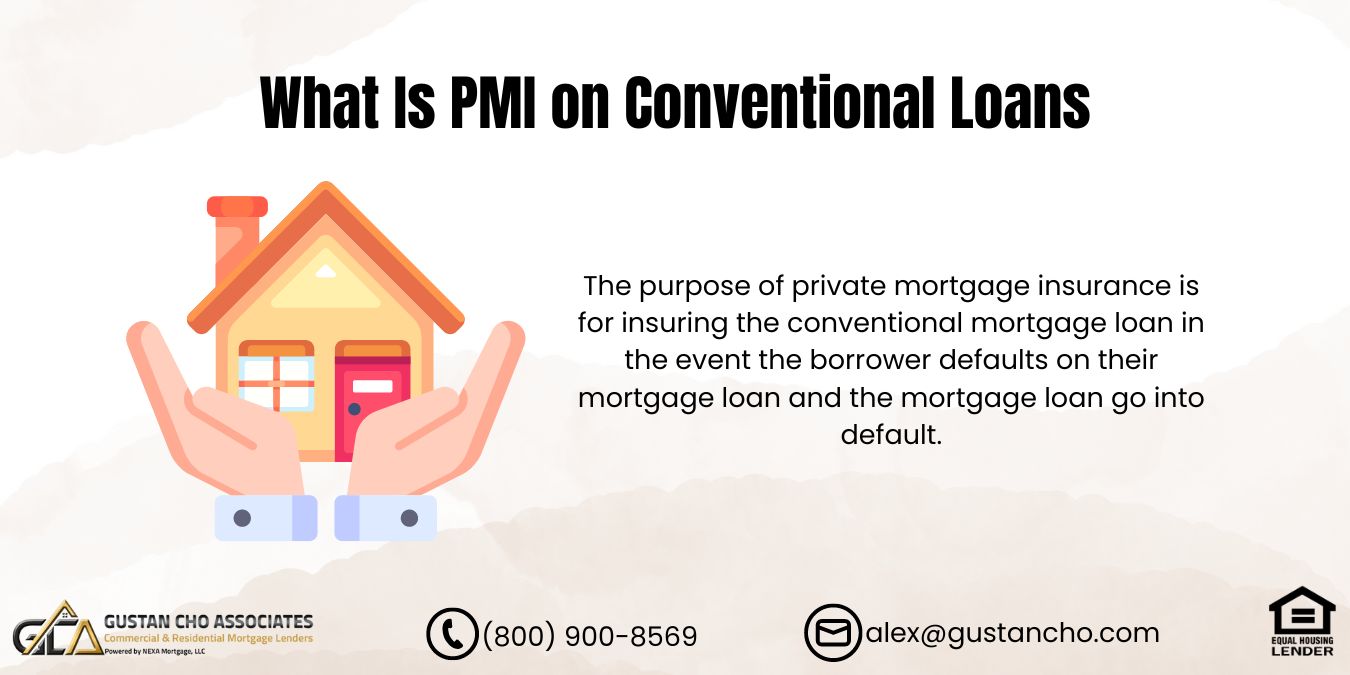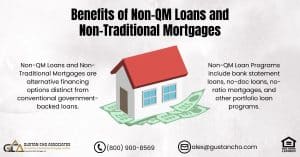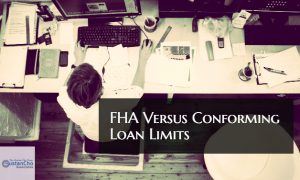This guide covers what is PMI on conventional loans. What Is PMI? One of the most common questions I often get asked by my borrowers is what is PMI or private mortgage insurance. There are two types of mortgage insurance: Mortgage insurance premium and private mortgage insurance (PMI). Mortgage Insurance Premium is for FHA Loans. Private Mortgage Insurance is for Conventional loans. Mortgage insurance on FHA loans or conventional loans is paid by the borrower for the benefit of the lender.
FHA mortgage insurance premium and private mortgage insurance on a conventional loan is paid by the borrower for the benefit of the lender.
In the event, if the borrower defaults on his or her mortgage loan and the loan defaults and goes into foreclosure, mortgage insurance will cover the lender. Some of the questions I get asked often about mortgage insurance is the following:. How much does mortgage insurance cost? How can I avoid paying private mortgage insurance. When and how can I cancel my private mortgage insurance on my mortgage loan? In this article, we will cover and discuss What Is PMI on Conventional loans. In the following paragraphs, we will cover what is PMI on conventional loans.
What Is PMI?
PMI stands for private mortgage insurance. Private mortgage insurance has no benefit to the borrower. It does not insure the homeowner against anything. The purpose of private mortgage insurance is for insuring the conventional mortgage loan in the event the borrower defaults on their mortgage loan and the mortgage loan go into default. A home buyer who has a conventional loan with less than 20% down payment, private mortgage insurance will be required.
Private mortgage insurance, PMI insures and protects the lender in the event if the mortgage loan borrower stops making mortgage payments on their conventional loan and goes into foreclosure.
PMI stands for Private Mortgage Insurance. Many homebuyers must purchase insurance, particularly if they’re making a down payment of less than 20% of the Home’s purchase price. In the following paragraphs, we will cover what is PMI and how private mortgage insurance works and why it’s important. Click Here to get detail about private mortgage insurance
What is the Difference Between PMI and MIP?
PMI (Private Mortgage Insurance) and MIP (Mortgage Insurance Premium) are both types of mortgage insurance, but they apply to different types of loans and have different rules and purposes. Understanding the differences can help homebuyers choose the right type of loan and budget for their home purchase.
PMI (Private Mortgage Insurance)
Applies to Conventional Loans: PMI is typically required on conventional loans when the down payment is less than 20% of the home’s purchase price. Borrower-Paid: It is generally paid monthly as part of the mortgage payment, although there are options to pay it upfront or a combination of upfront and monthly payments. Cancellable: Once the homeowner builds up enough equity in the home—typically when the mortgage balance falls to 80% of the original appraised value of the property—PMI can be requested to be canceled. It automatically terminates when the balance reaches 78%.
Cost of Private Mortgage Insurance
PMI costs vary based on down payment, credit score, and loan amount, generally ranging from 0.3% to 1.5% of the loan amount annually.
Cost of MIP (Mortgage Insurance Premium)
Applies to FHA Loans: MIP is required for all FHA loans, regardless of the down payment size. Upfront and Annual Payments: MIP typically requires an upfront payment at closing and an annual payment, divided into monthly charges included in the mortgage payment. Duration: For loans originating after June 2013, if the initial down payment is less than 10%, MIP must be paid for the life of the loan. If the down payment is 10% or more, it’s required for 11 years. Cost: The upfront MIP is usually about 1.75% of the loan amount, and the annual MIP ranges from 0.45% to 1.05% of the loan balance, paid annually but calculated monthly.
Key Differences of PMI and MIP
Loan Type Specific: PMI is for conventional loans, while MIP is for FHA loans. Cancellation Policy: PMI can be canceled under certain conditions, but MIP often remains for the life of the loan or a fixed period, depending on the down payment. Cost and Payment Structure: Both have different cost structures and payment schedules, which can significantly affect the overall cost of the loan over time. Understanding these differences can help potential homeowners make more informed decisions about which type of loan best fits their financial situation and how long they will be paying mortgage insurance.
Purpose of PMI
Risk Management for Lenders: PMI protects the lender, not the borrower, in case the borrower fails to make payments and the Home is foreclosed. Private mortgage insurance enables home buying with smaller down payments: PMI allows individuals to purchase homes without saving up for a large down payment.
How PMI Is Paid
Monthly Premiums: PMI fees are usually paid monthly as part of the mortgage payment. Initial Premium: Sometimes, a portion of the PMI may be required upfront at closing.
Termination of PMI
Automatic Termination: For home mortgages signed on or after July 29, 1999, PMI must be terminated automatically once the mortgage balance reaches 78% of the home’s original value (assuming all mortgage payments are current). Request for Cancellation: Homeowners can also request that PMI be canceled once the mortgage balance reaches 80% of the Home’s original appraised value. Understanding PMI is crucial for anyone considering buying a home with less than a 20% down payment, as it affects the total cost of the mortgage and how much they will pay monthly.
Who Pays For Private Mortgage Insurance?
The borrower pays the private mortgage insurance: PMI is paid monthly as part of their mortgage payment. Homeowners can cancel private mortgage insurance after a few years of paying for private mortgage insurance if you can pay down the loan balance to a certain amount or if your home appreciates in value. This is a great benefit for conventional loans. Homeowners have the option of canceling their private mortgage insurance if they have enough equity required by the lender where with FHA loans, MIP is required for the life of the loan. FHA mortgage insurance premiums on 30 year fixed rate mortgage loans cannot be canceled. It needs to be paid for the life of the FHA loan. Click Here to qualify for a FHA Loan
What Is PMI and How Much Does it Cost?
It is easy to calculate FHA annual mortgage insurance premium: It is because it is set at 0.55% of the FHA loan balance no matter what the borrower’s credit scores are or whatever the loan to value is. However, there are moving parts in how much private mortgage insurance costs. Variable Rates:
The cost of PMI can vary depending on the size of the down payment and the loan, but it typically ranges from 0.3% to 1.5% of the original loan amount per year.
It depends on the borrowers’ credit scores, the down payment on a home purchase. The loan to value on a refinance mortgage loan. The lower the borrower’s credit scores, the higher the risk the borrower is classified by the mortgage insurance company. The higher the loan to value, the higher the risk the mortgage insurance company classifies the mortgage loan applicant so the costs will be higher.
FHA Mortgage Insurance Premium
FHA loans have reduced their HUD annual mortgage insurance premium to 0.55% from 0,85% a few years ago: FHA loans have lower mortgage interest rates than conventional loans. This is because all FHA loans are insured by the government against default. Many times the private mortgage insurance on conventional loans are much higher than the FHA annual mortgage insurance premium for conventional borrowers with credit scores of under 680 FICO and those only putting down 3% to 5% down payment on conventional loans. Before jumping into a conventional loan program, shop and compare which loan will be better for you: FHA loan versus Conventional loan.
What Is PMI and How Can I Cancel PMI?
One option you have with conventional loans that you do not have with FHA Loans is that you can cancel your private mortgage insurance: This can be done by either by paying down your mortgage loan balance so it comes to 78% loan-to-value or if your property appreciates in value where you have 22% equity in your home or 78% loan-to-value.
What Is PMI And What Is Lender Paid Mortgage Insurance
 Borrowers can opt not to pay private mortgage insurance separately. They can choose to have the lender pay private mortgage insurance through Lender Paid Mortgage Insurance, also referred to as LPMI. However, nothing in this world is for free. With lender paid mortgage insurance, the borrower does not pay private mortgage insurance. The private mortgage insurance is paid by the lender. However, it comes with a price. Lender Paid Mortgage Insurance is available for conventional borrowers where the lender pays the private mortgage insurance premium in lieu of higher mortgage rates.
Borrowers can opt not to pay private mortgage insurance separately. They can choose to have the lender pay private mortgage insurance through Lender Paid Mortgage Insurance, also referred to as LPMI. However, nothing in this world is for free. With lender paid mortgage insurance, the borrower does not pay private mortgage insurance. The private mortgage insurance is paid by the lender. However, it comes with a price. Lender Paid Mortgage Insurance is available for conventional borrowers where the lender pays the private mortgage insurance premium in lieu of higher mortgage rates.
Depending on the individual borrower, this may or may not be a better alternative. The negatives of the lender paid mortgage insurance is that once it is set, you cannot change it when you have more than 20% equity in your home.
With private mortgage insurance, you can cancel the private mortgage insurance once your loan to value reaches 80% loan-to-value. Private mortgage insurance automatically cancels when your loan to value reaches 78% loan to value. For more information about the content of this topic or other mortgage-related topics, please contact us at Gustan Cho Associates at 800-900-8569 or text us for faster response. Or email us at gcho@gustancho.com. The team at Gustan Cho Associates is available 7 days a week, evenings, weekends, and holidays. Click Here to contact our expert for your mortgage loan
FAQ: What Is PMI on Conventional Loans
- What is PMI? Suppose your down payment is less than 20% of the home’s purchase price. In that case, you may have to pay Private Mortgage Insurance (PMI) on a conventional loan to protect the lender if you default on your mortgage.PMI protects the lender—not the borrower—in case the borrower defaults on the loan.
- What is the difference between PMI and MIP? PMI applies to conventional loans and can be canceled under certain conditions. Mortgage Insurance Premium (MIP) is for FHA loans and is generally not cancellable. It remains for the life of the loan or a fixed period, depending on the down payment size.
- How much does PMI cost? The cost of PMI varies based on the down payment, credit score, and loan amount, typically ranging from 0.3% to 1.5% of the loan amount annually.
- How can I avoid paying PMI? To enhance your financial stability and achieve your goals, it’s important to consider avoiding Private Mortgage Insurance (PMI). You can achieve this by paying at least 20% of the home’s purchase price. Alternatively, you can opt for Lender-Paid Mortgage Insurance (LPMI), which covers the cost of PMI in exchange for a higher interest rate.
- When and how can I cancel my PMI? To cancel PMI, once your loan balance exceeds 80% of your home’s original appraised value, you can request to cancel it. Make your mortgage payments on time to ensure that PMI is automatically canceled when the balance reaches 78%.
- What are the benefits of paying PMI? If you cannot afford a 20% down payment, PMI can be a crucial tool in allowing you to purchase a home with a smaller down payment. However, it is important to note that PMI adds an additional cost to your mortgage.
- What is Lender Paid Mortgage Insurance (LPMI)? LPMI is an alternative to borrower-paid PMI, where the lender pays the PMI in exchange for a higher interest rate on the mortgage. While it eliminates the need for separate PMI payments, it is not cancellable like borrower-paid PMI once you have more than 20% equity.
- Can PMI be canceled on an FHA loan? No, for most FHA loans originated after June 2013 with less than a 10% down payment, MIP cannot be canceled and must be paid for the life of the loan. If the down payment is 10% or more, MIP is required for 11 years.
- How is PMI paid? PMI fees are typically paid monthly as part of the mortgage payment. Sometimes, a portion of the PMI may be required upfront at the loan’s closing.
- Who benefits from PMI? The lender benefits from PMI as it protects them if the borrower stops making payments and the home is foreclosed. It does not provide any benefit or insurance coverage to the homeowner.
Understanding these aspects of PMI will help prospective homebuyers make informed decisions when considering the financial implications of purchasing a home with less than a 20% down payment.







